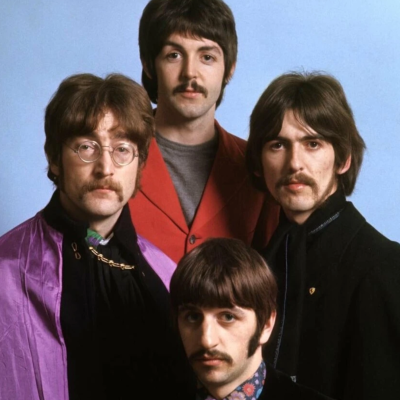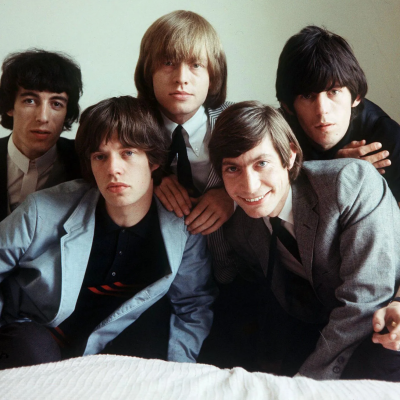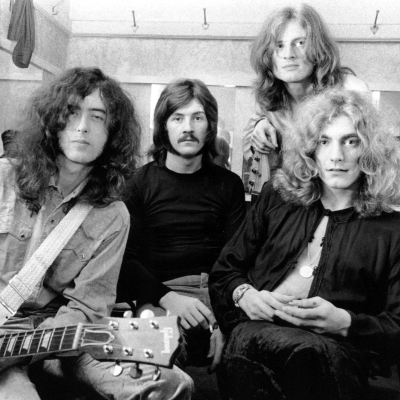The United Kingdom may be small, but its impact on global music is immense, including its influence on American music. The UK music industry ranks among the world’s largest, driven by the ongoing creation of global stars. From the birth of rock and roll to today’s vibrant pop culture, British artists have captured the hearts of audiences worldwide. Here, we’ll journey through the evolution of British music, its legendary figures, and its powerful, lasting influence on the global music scene.
Evolution of British Music
British music is rooted in centuries-old traditions, drawing on church music and folk styles unique to England, Scotland, Wales, and Northern Ireland. These early musical forms, shaped by traditional instruments and distinctive sounds, gradually evolved, laying the foundation for today’s music.
As Britain transformed during industrialisation, new popular music styles emerged. Music-halls became a lively escape for the working class, and brass bands brought communities together with classical melodies. These shifts marked the beginning of a commercial music industry that would revolutionise music in the 20th century.
From Classical Origins to Modern Beats
British classical music draws from Europe’s rich musical traditions, and by the seventeenth century, British composers were blending continental influences with their unique styles. Composers like Henry Purcell and William Byrd, celebrated today for their choral and church music, laid a foundation for future generations of British musicians.
In the nineteenth century, the rise of brass bands brought an exciting change to British music. While rooted in classical tradition, brass bands moved music beyond the concert hall and into the streets, catering to the entertainment of new urban societies and making classical sounds accessible to all. These new forms of music became cherished parts of local communities, inviting everyone to experience and enjoy the music together.
This transition—from the formal world of classical compositions to the lively, communal presence of brass bands—highlights an essential quality of British music: its ability to adapt, connect, and bring people together across different backgrounds.

Key Periods and Genres in British Music History
The nineteenth century introduced new forms of entertainment that transformed British music, with the music hall scene becoming a cultural staple. Music-halls combined catchy, upbeat songs with humorous and dramatic acts, capturing the hearts of audiences from all walks of life and shaping national taste.
As Britain moved into the 20th century, industrialisation brought rapid societal changes, setting the stage for the British Folk Revival. This revival celebrated traditional English, Scottish, Irish, and Welsh music, breathing new life into folk songs and dances that expressed national pride, while paving the way for new forms of popular music. This period connected people with their heritage and reintroduced classic folk tales and tunes into popular culture.
At the same time, British jazz emerged, and the rise of dance bands led to the creation of British dance bands, bringing an exciting, fresh energy to the music scene. These genres offered a vibrant soundtrack to a rapidly changing world, blending contemporary influences with traditional styles that catered to various social occasions. This unique combination helped define British musical identity, laying the groundwork for future genres and artistic movements.
This evolution of British music—from the traditional to the modern, from folk to jazz—illustrates the adaptability and creative spirit of British music, a quality that continues to resonate through its impact on global music today.

Iconic British Artists That Shaped Music
Few countries boast a music scene as remarkable as the United Kingdom’s. Various artists have continually pushed boundaries, delighted listeners, and left a lasting mark on the world of music.
These legendary figures, celebrated for their distinctive styles and cultural impact, have created music, including beat music and progressive rock, that endures across generations. From rock to pop, punk to electronic, British artists have reshaped genres and inspired countless musicians worldwide, building a powerful legacy. This legacy reinforces the UK’s role as a leading force in global music, keeping its influence vibrant and relevant in the ever-evolving music landscape.
The Beatles
The 1960s marked a global shift in music with the arrival of the British Invasion. Leading this movement were four young men from Liverpool—The Beatles. With their fresh sound, memorable melodies, and undeniable charisma, John, Paul, George, and Ringo became the first band to achieve true international stardom. They sparked a worldwide fascination with British music that endures to this day.
The Beatles were more than just a band; they became cultural icons, reshaping music, fashion, and even language. Their innovative approach to songwriting and recording set a new standard for pop music, influencing countless artists who followed. Their impact extended far beyond music, helping to shape popular culture in ways that are still felt today.
While The Beatles led the way, the British Invasion was also powered by other legendary bands like The Rolling Stones, The Kinks, The Who, and The Animals. These groups reinforced the UK’s status as a hub of musical innovation, securing a lasting place for British artists on the world stage. Together, they made Britain synonymous with groundbreaking music and artistic excellence.

The Rolling Stones
While The Beatles brought a playful and fresh approach to rock, The Rolling Stones introduced a gritty edge and raw energy that reshaped the genre, much like Black Sabbath did later in defining the heavy sound of rock. Fronted by the magnetic Mick Jagger and the brilliant guitarist Keith Richards, the Stones became symbols of rock and roll rebellion. Their bold attitude and powerful sound left an indelible mark on music, inspiring generations of musicians.
The Rolling Stones first achieved widespread success in the UK before their influence spread globally. They transformed rock with blues-driven riffs, a hard-hitting style, and a touch of danger that became iconic. Their impact goes beyond music; their songs are featured in countless films, TV shows, and adverts, keeping their legacy alive and introducing new fans to their timeless sound. As one of rock’s most influential bands, The Rolling Stones continue to embody the rebellious spirit that defines the genre.

Led Zeppelin
Emerging at the end of the 1960s, Led Zeppelin revolutionised rock music with a heavier sound that laid the foundation for heavy metal. The band—featuring Robert Plant’s commanding vocals, Jimmy Page’s iconic guitar riffs, John Paul Jones’s memorable bass lines, and John Bonham’s thunderous drumming—crafted some of the most iconic rock songs ever recorded.
Led Zeppelin’s impact on British music and the global industry is undeniable. They elevated the standard for live performances, headlining major festivals and selling out stadiums worldwide. Their unique sound blended blues, folk, and rock into a powerful fusion that transcended traditional genres.
Decades after their breakup in 1980, Led Zeppelin’s music continues to resonate with fans of all ages. Their legacy as one of the greatest rock bands in history is firmly cemented, a testament to their lasting influence and innovation in music.

Elton John
Elton John is a legendary British musician whose influence on the music industry is both profound and enduring. His career spans decades, showcasing his exceptional talent and boundless creativity.
From his early days to his rise to mainstream fame, Elton John has captured the hearts of fans worldwide with his masterful songwriting and vibrant, energetic performances. His achievements include numerous awards, such as the Grammy Awards, affirming his status as a music icon. Elton John’s impact reaches across borders, solidifying his legacy as a true legend in British music.

One Direction
Formed in 2010, One Direction revitalised the boy band concept for a new generation. They quickly achieved mainstream success and built a devoted global fanbase reminiscent of past iconic boy bands.
The group—featuring Niall Horan, Zayn Malik, Liam Payne, Harry Styles, and Louis Tomlinson—captured the hearts of teens worldwide with their upbeat pop songs, charming personalities, and magnetic stage presence. Embracing social media, they created a strong connection with fans across the globe, becoming a defining part of a new era in pop music.
Although One Direction went on hiatus in 2016, their influence on British pop music remains undeniable. With five hit albums, sold-out stadium tours, and a lasting impact on young musicians, their legacy endures. Today, each member enjoys a successful solo career, proving that their talent and appeal extend well beyond their time as a band.

Take That
Formed in the early 1990s, Take That quickly rose to become one of the UK’s most successful boy bands. Known for their catchy songs, smooth dance moves, and undeniable charm, Gary Barlow, Robbie Williams, Howard Donald, Mark Owen, and Jason Orange created a pop sensation that captivated fans, especially teenagers, across the nation.
Take That’s impact on UK pop music is unmistakable. They redefined the boy band image by producing sophisticated pop music that appealed to a wide audience. Many of their well-crafted hits, often penned by Gary Barlow, showcased their vocal and songwriting talents, setting them apart from other groups of their time.
Their legacy endures through reunions, thriving solo careers, and their lasting influence on pop music, solidifying Take That’s place as a defining act in British pop history.

Little Mix
Formed during the eighth season of The X Factor UK in 2011, Little Mix quickly became a powerful force in the British music industry. Comprised of Perrie Edwards, Leigh-Anne Pinnock, Jade Thirlwall, and formerly Jesy Nelson, Little Mix brought “girl power” back into the spotlight, captivating fans with their impressive vocals, empowering lyrics, and dynamic performances.
Their hit songs often celebrate themes of self-love, female empowerment, and friendship—messages that resonate deeply with young audiences, particularly girls. This has made Little Mix role models for a generation navigating the challenges of adolescence and early adulthood.
Little Mix’s success is underscored by numerous awards, cementing their place as one of the UK’s most successful girl groups. Their influence extends beyond music; they’ve inspired countless young women and paved the way for future female artists in the British music scene.

Influential British Music Movements
British music is not just about standout artists; it’s about movements that inspire entire subcultures and reshape fashion, art, and social attitudes. From the bold, rebellious messages of punk to the introspective sounds of shoegaze, the UK has a unique ability to transform new music into cultural phenomena.
These movements highlight how Britain absorbs diverse influences, experiments with fresh sounds, and challenges convention. Through this creative spirit, the UK continually shapes the evolving world of popular music, leaving a lasting impact that reaches far beyond music itself.
1970s Punk Revolution
In the late 1970s, the UK faced significant social and economic challenges. Amidst this turmoil, punk rock emerged from the underground, bringing a raw and rebellious sound that captured the frustrations of a generation. Led by bands like the Sex Pistols, The Clash, Joy Division, and The Damned, punk became a powerful response to the perceived excesses and stagnation in both the music industry and society, while glam rock had previously set the stage for such radical expression.
Punk bands embraced a do-it-yourself ethos, favouring raw energy over polished production and intricate musicianship. Their songs were often built on simple three-chord patterns and voiced the anger and disillusionment felt by many young people of the time.
Punk’s impact extended far beyond music, creating a distinctive culture that influenced fashion, graphic design, and independent media. Its legacy is still evident today, not only in music and style but in the enduring spirit of DIY creativity. Punk’s influence fuels artistic expression and countercultural movements, reminding us of the power of music to challenge norms and inspire change.

1990s Britpop and Its Cultural Impact
The 1990s saw Britpop dominate the music scene, bringing a fresh sense of optimism and cultural pride to the UK. Bands like Blur, Oasis, Pulp, and Suede led this movement, offering catchy, guitar-driven music that contrasted sharply with the darker, introspective tones of American grunge.
Britpop emerged during a period of significant social change in the UK. After a challenging start to the decade, by the mid-1990s, people felt a renewed sense of positivity and confidence. This new outlook was reflected in Britpop’s upbeat, celebratory sound.
Britpop’s influence extended beyond music, shaping fashion, art, and media. It fostered a cultural moment that celebrated British identity and instilled a hopeful outlook for the future. This movement left a lasting impact, not just as a musical genre but as a vibrant period of cultural pride and renewal.
The Global Influence of British Music
British music has a profound influence that spans continents, impacting music, fashion, art, and youth culture worldwide. From the British Invasion of the 1960s to today’s chart-topping artists, UK music resonates globally, capturing audiences across generations.
This enduring influence reflects British music’s creativity, diversity, and universal appeal. With a deep-rooted history and an ever-evolving sound, British music continues to shape the global music landscape.
How British Music Conquered the World
The global success of British music is a layered story of cultural influence, innovation, and the ability to create popular songs that resonate universally. The British Invasion of the 1960s, led by iconic bands like The Beatles and The Rolling Stones, revolutionised the music scene, setting a new standard for international fame, and paving the way for a Second British Invasion in the following decades.
British artists have consistently pushed boundaries, exploring new sounds and blending influences from various musical styles, particularly American genres, with their own cultural backgrounds. This unique mix has given rise to fresh movements and genres that have captivated global audiences.
Whether in heavy metal, punk rock, Britpop, or grime, British music has a remarkable ability to spark worldwide trends, crossing cultural boundaries and inspiring fans everywhere.

British Music’s Role in Fashion and Social Movements
British music goes beyond sound—it has shaped fashion and fuelled social movements. This fusion of music, style, and social change was especially evident during the punk rock explosion of the 1970s. Punk’s DIY ethos, bold lyrics, and rebellious energy influenced fashion and challenged societal norms.
Ripped clothes, safety pins, and bright hair colours became symbols of a movement that defied conformity and voiced the frustrations of those often overlooked. Punk’s style endures today, appearing on runways and in street fashion worldwide.
From the mods and rockers of the 1960s to the ravers of the 1990s, British music has been at the heart of social gatherings and countercultural movements. This blend of music and social impact underscores the power of music to unite, inspire, and transform, making British music much more than entertainment—it’s a driving force for change.
Using Music to Improve English Skills for Non-Native Speakers
Music is a fun and effective tool for non-native English speakers looking to improve their language skills. Songs offer a rich variety of vocabulary, expressions, and pronunciation examples, making language learning engaging and memorable. Here are some ways to use music to enhance English skills:
- Listening and Pronunciation Practice: Listening to English songs helps you get used to the rhythm, stress, and intonation of the language. Try singing along to your favourite songs; this can improve your pronunciation and help you mimic natural speech patterns. You can start with slower songs to focus on each word, then gradually move to faster ones as your confidence grows.
- Expanding Vocabulary and Phrases: Songs are full of everyday language, idioms, and slang, giving learners insight into how English speakers actually talk. Focus on the lyrics to learn new vocabulary and phrases in context. Writing down unfamiliar words, looking up their meanings, and trying to use them in sentences can help you remember them.
- Understanding Grammar in Context: While song lyrics may not always follow strict grammar rules, they do provide examples of common structures and sentence patterns. Pay attention to verb tenses, word order, and how different grammatical structures are used to convey meaning. This helps reinforce your understanding of grammar in a more natural, real-world setting.
- Improving Listening Skills: Listening to music helps train your ear to pick up different accents, tones, and sounds, which is essential for understanding spoken English. Start with clear, slower songs, then challenge yourself with different genres to expose yourself to various accents and styles. Repeating songs can also help reinforce listening comprehension.
- Enhancing Memory and Retention: Music can be incredibly effective for memorisation. Catchy melodies and repeated lyrics make it easier to remember words and phrases. Songs that you enjoy are likely to stick in your memory, helping you retain language structures and vocabulary more effectively than traditional study alone.
- Practising Reading and Writing: Read song lyrics while listening to improve reading skills and see how words are spelled in English. You can also try writing down the lyrics from memory or summarising the song’s meaning in your own words. This reinforces your understanding and helps with spelling, grammar, and expression.
- Building Confidence in Speaking: Singing along to songs you love is a great way to practice speaking without the pressure of formal conversation. It allows you to speak (or sing) in English in a relaxed way, building confidence in your pronunciation and fluency.
Using music in your English learning routine can make the process more enjoyable and immersive. Choose songs that interest you, explore different genres, and don’t be afraid to experiment with new words and expressions. With time, you’ll notice that your English skills are not only improving but that you’re having fun along the way.

The Best of British Music: Final Thoughts
British music’s influence is vast and enduring, reaching across borders and generations. From iconic bands like The Beatles and The Rolling Stones to modern-day pop sensations, British artists have continuously shaped global music, fashion, and social movements. Each musical era—from punk’s rebellious energy to Britpop’s cultural pride—has contributed to a legacy that goes far beyond entertainment, inspiring change and connection around the world.
For non-native speakers, British music also offers a powerful tool for language learning. By listening to songs, exploring lyrics, and practising pronunciation, learners can enhance their English skills in an engaging, immersive way.
British music’s history and impact remind us that music isn’t just sound; it’s a vibrant, unifying force that bridges cultures, supports self-expression, and helps us all connect on a deeper level. Whether for inspiration, cultural exploration, or language practice, British music remains a rich and valuable resource.
Frequently Asked Questions
Who is considered the greatest British band or musician of all time?
Crowning one British artist as the “greatest” is a matter of opinion and can lead to endless discussions. However, The Beatles often get this title in Great Britain. They had international success, their impact going beyond different music styles and generations, making them a key part of music history.





